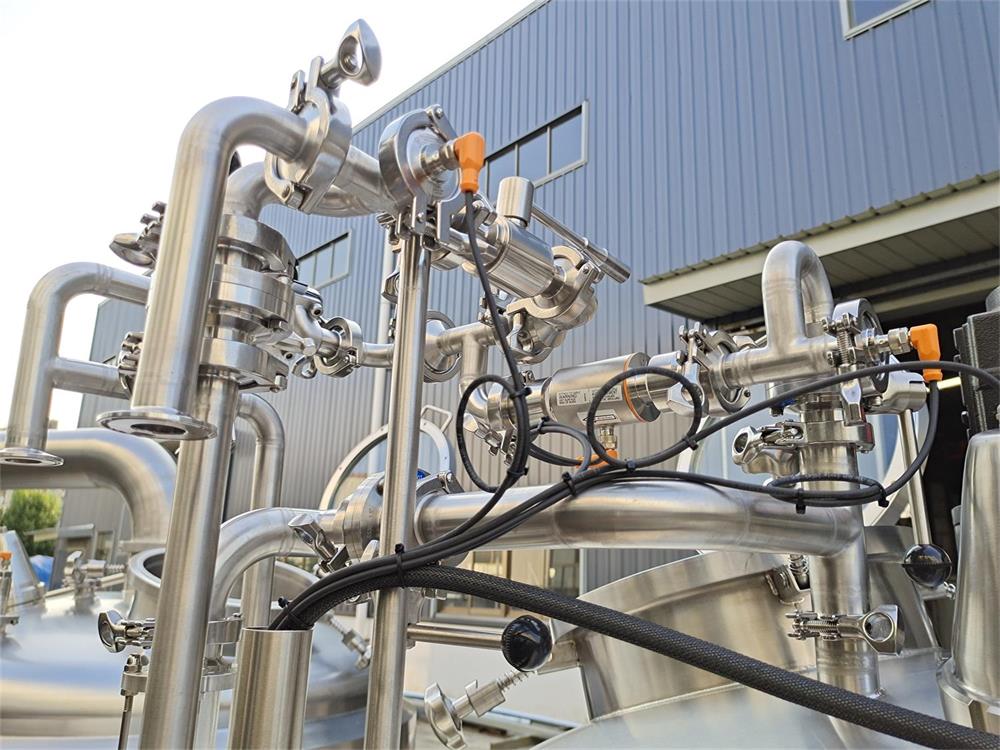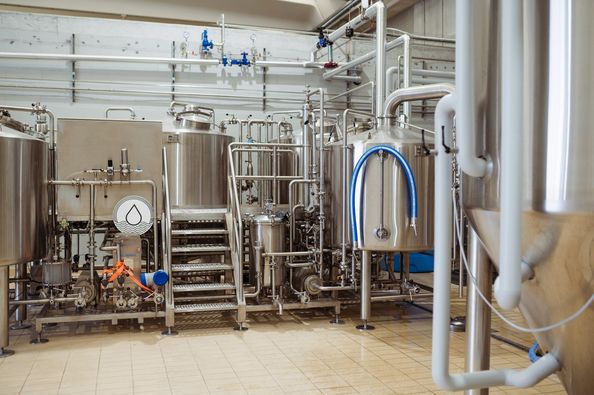Professional Brewing Equipment
Brewing beer professionally is both an art and a science. It requires the right equipment, skill, and understanding of the processes involved. Whether you’re starting a microbrewery, scaling up production, or simply exploring the intricacies of brewing, having the right professional brewing equipment can make or break your venture. In this guide, we’ll delve deep into everything you need to know about professional brewing equipment—from understanding the basics, comparing options, and exploring processes, to evaluating costs and suppliers.
Overview of Professional Brewing Equipment
Brewing beer at a professional level involves an array of equipment tailored for specific tasks. The equipment ranges from mash tuns and fermenters to specialized bottling systems. Here’s a quick summary:
- Purpose: Professional brewing equipment facilitates precise brewing processes, ensuring consistency, scalability, and efficiency.
- Key Components: Mash tuns, fermentation tanks, lautering tuns, heat exchangers, kettles, conditioning tanks, and packaging systems.
- Customization: Equipment can be tailored for small-scale craft breweries or large-scale industrial setups.
- Materials: Stainless steel is the gold standard for brewing due to its durability and resistance to contamination.

Detailed Guide to Professional Brewing Equipment
Mash Tuns: Where Brewing Begins
Mash tuns are insulated vessels where malted grains are mixed with hot water to extract fermentable sugars. These tanks are critical for setting the foundation of your beer’s flavor.
- Features: Insulation for temperature control, false bottoms for separation, and agitators for mixing.
- Benefits: Ensures optimal sugar extraction and consistent quality.
Lauter Tuns: Filtering the Wort
Once the mashing is done, the wort (sugar-rich liquid) is separated from the spent grains in the lauter tun. The design of the tun influences efficiency.
- Features: Slotted or perforated plates for filtration.
- Challenges: Proper cleaning is essential to prevent clogs.
Kettles and Boilers: The Boiling Process
Boiling the wort sterilizes it and incorporates hops for flavor. Kettles come in various sizes and configurations.
- Features: Built-in heating elements, steam jackets, or gas burners.
- Key Considerations: Energy efficiency and boil-off rates.
Brewing Equipment Comparison by Type
| Equipment Type | Purpose | Key Features | Materials | Common Capacities |
|---|---|---|---|---|
| Mash Tun | Sugar extraction | Insulated, false bottom, agitator | Stainless steel | 1–50 barrels |
| Lauter Tun | Wort filtration | Perforated plates | Stainless steel | 1–50 barrels |
| Fermentation Tanks | Ferment sugar into alcohol | Temperature-controlled, airtight | Stainless steel | 5–100 barrels |
| Brite Tanks | Carbonation and conditioning | Temperature-controlled, pressurized | Stainless steel | 5–100 barrels |
| Packaging Systems | Bottling or canning beer | Automated or manual | Various materials | 500–10,000 units/hour |
The Brewing Process in Professional Equipment
Brewing beer professionally involves multiple steps. Here’s a detailed walkthrough:
1. Mashing
Grains are combined with hot water in the mash tun to activate enzymes. This step is crucial for sugar extraction, which directly impacts the beer’s alcohol content and sweetness.
2. Lautering
The wort is separated from the spent grains in the lauter tun. Think of it as filtering your tea leaves to get a clean brew.
3. Boiling
The wort is boiled in kettles to sterilize it and infuse hops, which provide bitterness and aroma.
4. Cooling and Fermentation
The hot wort is rapidly cooled using heat exchangers before being transferred to fermentation tanks, where yeast is added. Fermentation lasts from days to weeks depending on the beer type.
5. Conditioning and Carbonation
In brite tanks, the beer matures, flavors blend, and carbonation is adjusted.
6. Packaging
Finally, the beer is packaged using automated bottling or canning systems, ready for distribution.
Customizing Equipment for Brewery Needs
| Parameter | Details |
|---|---|
| Capacity | Choose between small-scale (5 barrels) or large-scale (100+ barrels) based on production goals. |
| Design | Modular designs are ideal for scalability. Compact setups save space. |
| Layout | Optimize space usage by aligning tanks, kettles, and packaging systems. |
| Customization | Add-ons like automated cleaning systems or advanced monitoring sensors enhance efficiency. |
Supplier Guide and Price Range
| Supplier | Equipment Offered | Price Range | Lead Time |
|---|---|---|---|
| Alpha Brewing Ops | Complete brewery systems | $50,000–$500,000 | 8–12 weeks |
| Blichmann Engineering | Craft brewing systems | $10,000–$100,000 | 4–8 weeks |
| SS Brewtech | Fermenters and brite tanks | $5,000–$50,000 | 6–10 weeks |
| GEA Brewery Systems | Industrial brewing solutions | $100,000–$1,000,000 | 12–16 weeks |
Installation, Operation, and Maintenance
| Aspect | Details |
|---|---|
| Installation | Requires professional setup with attention to plumbing, electrical systems, and ventilation. |
| Operation | User training is essential for optimal usage. Automated systems simplify workflows. |
| Maintenance | Regular cleaning of tanks, filters, and lines prevents contamination. Periodic inspections ensure durability. |
How to Choose the Right Supplier
| Factor | What to Look For |
|---|---|
| Reputation | Check reviews, testimonials, and case studies. |
| Customization Options | Suppliers offering tailored solutions are ideal for niche requirements. |
| After-Sales Support | Maintenance contracts and user training are valuable add-ons. |
| Budget Alignment | Ensure the supplier can deliver quality within your price range. |

Advantages and Limitations of Professional Brewing Equipment
| Aspect | Advantages | Limitations |
|---|---|---|
| Scalability | Enables consistent production at large volumes | High upfront investment |
| Efficiency | Automated systems save time and reduce errors | Requires skilled operators |
| Durability | Stainless steel resists corrosion and contamination | Regular maintenance needed |
| Customization | Tailored setups match brewery needs | Customization increases costs |
FAQs
| Question | Answer |
|---|---|
| What is the cost of professional brewing equipment? | Prices range from $50,000 for small setups to over $1 million for industrial systems. |
| How long does it take to install brewing equipment? | Installation typically takes 4–8 weeks, depending on the system’s complexity. |
| Can I customize brewing equipment? | Yes, many suppliers offer modular designs and custom features like automation or unique layouts. |
| What maintenance is required? | Regular cleaning and periodic inspections of tanks, pipes, and heating systems are essential. |
Share this entry
Interested in learning more about Brewing Systems including additional details and pricing information? Please use the form below to contact us!
YOLONG BREWERY EQUIPMENT FAQS
- Commercial Brewery / Craft Brewery / Microbrewery / Nanobrewery
- What is The Difference Between Craft Beer and Industrial Beer?
- The Bespoke Differences In Custom Brewing Systems
- Everything You Need to Know About Kettle Souring
- How to Choose Brewing Equipment for Your business?
- How To Choose The-Best Partner To Build Your Commercial Microbrewing System?
- Two Detection Sensors That You Need To Use In Your Brewhouse System
- Remote Control Applications in Brewing Equipment/How does it work?
- How To Clean Your Brand New Brewery Tanks?

